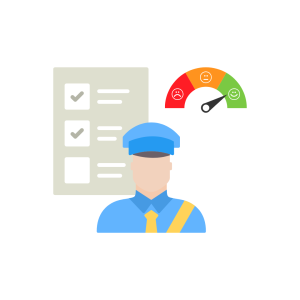Introduction
The demand for seamless B2B data integration solutions has never been greater. As companies strive to stay competitive and meet their customers’ ever-changing needs, the role of trusted resellers and integration partners has become increasingly crucial. The business-to-business (B2B) sector is undergoing a significant transformation, driven by technological advancements and changing customer expectations. As organizations seek to streamline their operations and enhance their digital capabilities, the demand for specialized solutions and expert guidance has skyrocketed. One effective strategy is to form B2B partnerships to resell powerful technologies like EDI (Electronic Data Interchange), VAN (Value-Added Network), and GDSN (Global Data Synchronization Network) solutions.
The modern business ecosystem thrives on connectivity, efficiency, and adaptability. B2B partnerships have emerged as a crucial model, enabling businesses to extend their service offerings without incurring massive infrastructure costs. Reselling solutions such as EDI, VAN, and GDSN allow companies to cater to their clients’ digital transformation needs while generating substantial revenue.
Whether you’re a technology service provider, consultant, or distributor, understanding the value of reselling these solutions can position your business as an essential partner in your industry. Let’s dive into the intricacies of becoming a trusted reseller and ERP integration partner, exploring the key strategies, skills, and technologies that will set you apart in this competitive landscape.
Throughout this journey, we’ll explore various aspects of B2B partnerships, including:
- Understanding the B2B landscape and market trends
- The role of resellers and integration partners in the modern business ecosystem
- Key technologies and solutions in high demand
- Building expertise in popular ERP systems
- Developing a strong value proposition
- Cultivating lasting relationships with clients and vendors
Key Takeaways
Focus on High-Demand B2B Technologies
Successful resellers specialize in solutions with growing market demand, particularly EDI, VAN, GDSN, and PIM systems. These technologies form the backbone of modern B2B data exchange, offering significant business opportunities and addressing critical digital transformation needs.Develop Expertise in ERP Integration
Building deep knowledge of popular ERP systems like SAP, Oracle NetSuite, and Microsoft Dynamics creates substantial value. The ability to seamlessly connect these platforms with specialized B2B solutions unlocks enhanced data accuracy, automated workflows, and operational efficiency for clients.Craft a Distinctive Value Proposition
Stand out by clearly articulating your unique strengths, quantifying your impact with concrete metrics, and aligning offerings precisely with customer pain points. A compelling value proposition should communicate not just what you do, but how your approach delivers superior outcomes compared to competitors.Cultivate Strong Relationships on Both Sides
Long-term success depends on nurturing relationships with both clients and solution vendors through consistent communication, exceptional support, and value-added services. Establishing feedback loops demonstrates commitment while strengthening partnerships that drive mutual growth.Understand Industry-Specific Requirements
Different sectors (manufacturing, healthcare, retail, finance) have unique challenges and integration needs. Developing specialized knowledge in specific industries allows resellers to deliver more targeted, valuable solutions and differentiate themselves in competitive markets.
1. Understanding the B2B Landscape and Market Trends
The B2B sector has undergone significant changes in recent years, driven by technological advancements, shifting customer expectations, and global economic factors. Here are some key trends and statistics that highlight the evolving nature of the B2B landscape:
- Digital Transformation Acceleration: According to a McKinsey survey, the COVID-19 pandemic has accelerated the adoption of digital technologies by several years, with many B2B companies shifting to remote selling and digital customer interactions.
- Rise of B2B E-commerce: Forrester predicts that B2B e-commerce sales will reach $1.8 trillion by 2027, accounting for 17% of all B2B sales in the US.
- Increased Focus on Customer Experience: B2B buyers now expect the same personalization and seamless experience they receive in B2C transactions. A study by Accenture found that 80% of B2B buyers expect the same buying experience as B2C customers.
- Growing Importance of Data and Analytics: B2B companies are increasingly leveraging data analytics to gain insights into customer behavior, optimize operations, and drive decision-making.
- Shift Towards Cloud-Based Solutions: The global cloud computing market is expected to reach $832.1 billion by 2025, with many B2B companies adopting cloud-based business solutions.
- Emphasis on Integration and Interoperability: As businesses use an increasing number of specialized software solutions, the need for seamless integration between these systems has become paramount.
- Rise of Artificial Intelligence and Machine Learning: AI and ML are being incorporated into various B2B solutions, from predictive analytics to automated customer service.
- Sustainability and Corporate Social Responsibility: B2B buyers are placing greater importance on sustainability and ethical business practices when choosing partners and vendors.
Understanding these trends is essential for aspiring resellers and integration partners, as they highlight the areas where businesses are likely to invest and seek expertise. By aligning your offerings and skills with these market dynamics, you can position yourself as an asset to potential clients.
Moreover, it’s important to recognize that the B2B landscape is not monolithic. Different industries and sectors may have unique challenges and requirements. For example:
- Manufacturing: Focus on supply chain optimization, Industry 4.0 technologies, and predictive maintenance
- Healthcare: Emphasis on data security, regulatory compliance, and interoperability of systems
- Retail: Omnichannel experiences, inventory management, and personalization
- Financial Services: Risk management, regulatory compliance, and fraud detection
By developing expertise in specific industries or niches, you can differentiate yourself from general competitors and provide more targeted, valuable solutions to your clients.
2. The Role of Resellers and Integration Partners in the Modern Business Ecosystem
Resellers and integration partners help organizations navigate the ever-expanding landscape of software solutions and technologies. These professionals serve as trusted advisors, bridging the gap between software vendors and end-users, and ensuring that businesses can leverage the full potential of their technological investments.
Understanding the Reseller’s Role
A software reseller, also known as a value-added reseller (VAR), is a company or individual that purchases or recommends software products from vendors and sells/refers them to end-users, often bundling them with additional services or complementary products. The key responsibilities of a reseller include:
- Product Knowledge: Developing an in-depth understanding of the software solutions they represent, including features, benefits, and use cases.
- Market Analysis: Identifying potential customers and understanding their specific needs and pain points.
- Sales and Marketing: Promoting software solutions to potential clients and guiding them through the purchasing process.
- Customer Support: Providing initial setup assistance, training, and ongoing support to ensure client satisfaction.
- Vendor Relationship Management: Maintaining strong relationships with software vendors to stay updated on product developments and secure favorable terms.
Resellers add value to the ecosystem by:
- Offering localized support and expertise
- Providing personalized recommendations based on client needs
- Bundling complementary products and services for comprehensive solutions
- Offering competitive pricing through volume purchasing
The Integration Partner’s Critical Function
Integration partners, on the other hand, specialize in connecting different software systems and ensuring they work together seamlessly. Their role is crucial in today’s business environment, where companies often use multiple specialized applications that need to communicate effectively. Key responsibilities of integration partners include:
- Technical Expertise: Developing a deep knowledge of various software systems, APIs, and integration methodologies.
- Solution Design: Creating custom integration solutions that address specific business needs and workflows.
- Implementation: Executing integration projects, including data migration, system configuration, and testing.
- Troubleshooting and Optimization: Identifying and resolving integration issues, and continuously improving system performance.
- Training and Documentation: Providing comprehensive training to clients and creating documentation for ongoing maintenance.
Integration partners contribute to the ecosystem by:
- Enabling businesses to leverage best-of-breed solutions across different functions
- Improving data flow and consistency across the organization
- Automating processes and reducing manual data entry
- Enhancing overall system efficiency and user productivity
The Convergence of Reselling and Integration
In recent years, the lines between reselling and integration have become increasingly blurred. Many successful partners now offer both services, positioning themselves as end-to-end solution providers. This convergence offers several advantages:
- Comprehensive Solutions: By combining reselling and integration services, partners can offer clients a one-stop shop for their software needs, from selection to implementation and ongoing support.
- Deeper Client Relationships: Providing both reselling and integration services allows partners to develop more strategic, long-term relationships with their clients.
- Increased Value Proposition: The ability to both recommend and implement integrated solutions enhances the partner’s value to clients and vendors alike.
- Competitive Advantage: Partners who can offer both services are better positioned to win complex projects and retain clients in the long term.
Key Skills for Success
To thrive as a reseller and integration partner in the modern business ecosystem, you’ll need to develop a diverse skill set that combines technical expertise with business acumen. Some essential skills include:
- Technical Proficiency: Strong understanding of various software systems, integration methodologies, and emerging technologies.
- Problem-solving: Ability to analyze complex business challenges and design effective solutions.
- Project Management: Skills to manage multi-faceted implementation projects and coordinate with various stakeholders.
- Communication: Clear and effective communication with both technical and non-technical audiences.
- Business Acumen: Understanding of different industries, business processes, and how technology can drive value.
- Adaptability: Willingness to continuously learn and adapt to new technologies and market trends.
- Relationship Building: Strong interpersonal skills to develop lasting relationships with clients and vendors.
By developing these skills and positioning yourself at the intersection of reselling and integration, you can become an invaluable partner to businesses navigating the complex world of B2B software solutions.
3. Key technologies and solutions in high demand
As a reseller and integration partner, it’s crucial to stay informed about the technologies and solutions that are driving the B2B data integration market. By focusing on high-demand areas, you can position yourself to meet the evolving needs of businesses and capitalize on growing market opportunities. Here are some key technologies and solutions that are currently shaping the B2B landscape
1. EDI Solutions
Electronic Data Interchange (EDI) has become a cornerstone of seamless B2B communication. Modern businesses rely on EDI solutions to automate the exchange of critical documents such as purchase orders, invoices, and shipping notices.
- Why It’s in Demand: Organizations need efficient systems to handle large transaction volumes while ensuring compliance with industry standards like ANSI X12 or EDIFACT.
- Commport Advantage: Commport’s EDI solutions offer tailored services that adapt to the unique requirements of industries like retail, manufacturing, finance healthcare, government organizations and logistics.
2. EDI Translation Services
EDI translation services simplify the integration of EDI data with internal systems by converting standardized messages into formats compatible with ERP, CRM, or other business platforms.
- Why It’s in Demand: Businesses with diverse trading partners need reliable translation services to bridge system incompatibilities and maintain smooth data exchange.
- Commport Advantage: Commport’s advanced EDI translation services ensure seamless interoperability, making integration efficient and error-free. Our translation services include EDI files to Any file translation or any to any file translation
3. Value-Added Network (VAN)
A VAN facilitates secure, scalable, and reliable EDI transactions. It acts as an intermediary for data transmission, ensuring seamless connectivity between trading partners.
- Why It’s in Demand: Security and reliability are top concerns for organizations exchanging sensitive business data. VANs also reduce the complexity of managing direct connections.
- Commport Advantage: Commport’s VAN solutions provide robust security, real-time tracking, a dedicated mailbox, inbuilt translation, and comprehensive support, enabling businesses to focus on their core operations.
4. Global Data Synchronization Network (GDSN)
The GDSN enables businesses to share accurate, real-time product data across the supply chain, ensuring compliance and operational efficiency.
- Why It’s in Demand: Retailers, distributors, and manufacturers require consistent product information to avoid costly errors and meet consumer expectations.
- Commport Advantage: As a certified GDSN data pool provider, Commport empowers businesses with reliable and efficient data synchronization capabilities.
5. Product Information Management (PIM)
PIM systems streamline the organization, enrichment, and distribution of product data across multiple channels, ensuring consistency and quality.
- Why It’s in Demand: With the growth of e-commerce and omnichannel retail, businesses need centralized tools to manage product information effectively.
- Commport Advantage: Commport’s PIM solutions integrate seamlessly with existing systems, offering robust features for data enrichment, governance, and distribution.
6. Business Analytics
Data-driven decision-making has become a key differentiator in competitive industries. Business analytics tools analyze data from EDI, VAN, GDSN, and other systems to deliver actionable insights.
- Why It’s in Demand: Companies are leveraging predictive analytics, AI, and machine learning to optimize supply chain performance and anticipate market trends.
- Commport Advantage: Commport’s analytics tools provide intuitive dashboards and reports, enabling businesses to visualize their operations and make informed decisions.
4. Building expertise in popular B2B and ERP Integration systems
The Importance of ERP Integration with Commport Solutions
ERP systems alone can optimize internal operations, but the true value is unlocked when they integrate with robust B2B solutions like those offered by Commport Communications. Such integrations enable:
- Automated Data Exchange: Real-time EDI transactions ensure seamless communication between ERPs and trading partners.
- Enhanced Data Accuracy: GDSN and PIM systems ensure consistent, error-free data synchronization across platforms.
- Streamlined Workflows: VANs simplify the exchange of data by providing secure and reliable communication protocols.
- Actionable Insights: Business Analytics solutions process ERP data to deliver insights for informed decision-making.
Popular ERP Systems in the Market
Here are some of the leading ERP systems businesses rely on today:
1. SAP ERP
- Market Presence: Widely used across industries for its scalability and customization.
- Key Features: Advanced analytics, real-time data processing, and robust supply chain management modules.
- Why It’s Important: Many global enterprises use SAP, making it a critical system for B2B integration.
2. Oracle NetSuite
- Market Presence: A favorite among mid-sized businesses due to its cloud-based architecture.
- Key Features: Built-in CRM, e-commerce modules, and financial management tools.
- Why It’s Important: Its cloud-first approach aligns with modern business needs.
3. Microsoft Dynamics 365
- Market Presence: Popular for its seamless integration with other Microsoft products.
- Key Features: AI-driven insights, modular design, and strong customer service capabilities.
- Why It’s Important: A versatile solution for businesses of all sizes.
Commport B2B Solutions integrated with all major ERP platforms. We offer a comprehensive ecosystem that simplifies data exchange, improves efficiency, and ensures our customers have access to the best technology and support available. Explore our trusted ERP integrations and Value Added Reseller (VAR) partnerships, and discover how working with Commport can transform your business.
Why ERP Expertise is Crucial for Commport Integration
Expertise in popular ERP systems such as SAP, Oracle NetSuite, and Microsoft Dynamics ensures the seamless integration of Commport solutions. This expertise enables businesses to:
- Customize Workflows: Tailor ERP functionalities to leverage Commport’s solutions effectively.
- Optimize Supply Chain Operations: Ensure data flows smoothly from trading partners into ERP systems and vice versa.
- Enhance Scalability: Enable ERPs to support growing data volumes and trading partner networks.
- Ensure Compliance: Align ERP workflows with regulatory and trading partner requirements using VAN and EDI.
5. Developing a Strong Value Proposition
Having a strong value proposition is crucial for attracting clients and standing out from other resellers and integration partners. Your value proposition should clearly communicate the unique benefits and expertise you bring to the table, addressing the specific needs and pain points of your target market. Here’s a guide to developing a compelling value proposition:
- Understand Your Target Market
Before crafting your value proposition, it’s essential to have a deep understanding of your target market
- Define Your Unique Strengths
Identify what sets you apart from other resellers and integration partners
Example: You might have developed a proprietary methodology for rapid EDI ERP implementation that reduces project timelines by 30% compared to industry standards.
- Align Your Offerings with Customer Needs
Ensure that your services and solutions directly address the pain points and objectives of your target market
- Quantify Your Value
Whenever possible, use concrete numbers and metrics to demonstrate the value you bring
- Craft a Clear and Concise Message
Distill your value proposition into a clear, compelling statement that resonates with your target audience
- Differentiate Through Your Approach
Highlight not just what you do, but how you do it
Our agile implementation methodology ensures your EDI ERP system evolves with your business needs, with continuous optimization and support long after the initial go-live
- Leverage Social Proof
Incorporate testimonials, case studies, and success stories to build credibility
- Tailor Your Message to Different Stakeholders
Recognize that different stakeholders within an organization may have different priorities
Example: For a CIO, emphasize how your solution reduces IT complexity and enhances data security, while for a CFO, focus on cost savings and improved financial visibility
- Continuously Refine and Update
Your value proposition should evolve as your business grows and market needs change
Example: If you notice increasing demand for AI-driven analytics in ERP systems, consider developing expertise in this area and updating your value proposition accordingly
- Communicate Consistently Across All Channels
Ensure your value proposition is consistently reflected across all your marketing and communication channels.
6. Cultivating Lasting Relationships with Clients and Vendors
Strong relationships are the backbone of successful B2B partnerships. Strategies include:
- Consistent Communication: Regular updates and follow-ups foster trust and transparency.
- Exceptional Customer Support: Promptly address concerns and provide proactive solutions.
- Value-Added Services: Offer training, resources, or exclusive access to new tools.
- Feedback Loops: Actively seek client feedback to improve services and demonstrate commitment.
Similarly, maintaining good relationships with solution vendors ensures reliable service delivery and potential preferential terms.
Why Join Commport Communications’ Partnerships and Reseller Program?
By becoming a reseller or partner with Commport Communications, you gain access to a comprehensive portfolio of cutting-edge B2B solutions tailored to meet the needs of modern businesses. Here’s why you should consider this opportunity:
- Diverse Product Portfolio: Offer best-in-class EDI, VAN, GDSN, PIM, and analytics solutions to meet diverse client requirements.
- Revenue Growth: Build recurring revenue streams with scalable and subscription-based solutions.
- Expert Training and Support: Access training, resources, and a dedicated support team to empower your success as a reseller.
- Competitive Edge: Leverage Commport’s reputation as a trusted provider in the B2B technology space to stand out in the market.
- Long-Term Partnership: Develop a lasting relationship with a company committed to innovation and client satisfaction.
Enhance ERP Integration Expertise
- EDI Integration: Seamless integration of trading partner data into ERP systems.
- VAN Connectivity: Reliable and secure data exchange that integrates directly with ERPs.
- GDSN and PIM Solutions: Ensuring accurate product data synchronization with ERP workflows.
- Business Analytics: Providing insights that help optimize ERP performance.
By partnering with Commport, you gain access to tools, resources, and expert support that simplify ERP integration for your clients, enhancing your reputation as a trusted B2B solutions provider.
Conclusion
Reselling data integration solutions like EDI, VAN, and GDSN solutions opens doors to significant business opportunities. By focusing on high-demand technologies, building ERP expertise, and cultivating strong client relationships, you can position your business as a trusted partner in the digital transformation journey of countless organizations.
Invest in this dynamic market today and watch your business soar to new heights!
Become a Registered Commport Partner
Frequently Asked Questions
The Commport Communications Reseller Program is designed to enable businesses to sell our products and services. As a reseller, you gain access to competitive commissions, marketing support, training, and exclusive benefits to help you succeed.
The program is open to registered businesses in the communications industry, including VARs, system integrators, and technology service providers. Applicants should have relevant experience and meet certain business requirements.
You can apply by filling out the online application form on our reseller registration page. Be prepared to provide necessary business details and documentation.
You will need to provide your company name, contact information, business type, tax ID or business registration number, primary contact details, and any relevant experience.
The application process typically takes 7-10 business days. You will receive a confirmation email once your application is under review, and we will notify you of the outcome via email.
Once approved, you will receive a welcome package with detailed information about the program, and training materials. Your dedicated account manager will also contact you to assist with onboarding.
Commission rates vary based on product categories. Detailed information on commission structures will be provided upon joining the program.





